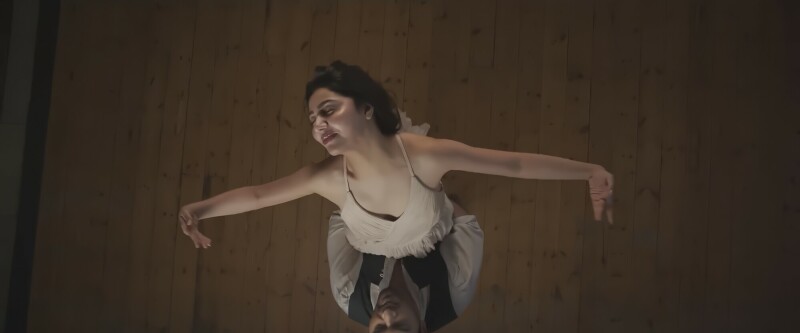Lahore Biennale Foundation wants to bring art to the public, says LBF co-founder Qudsia Rahim
The art market in Pakistan may be flourishing with artists being picked up for international art shows, fairs and the Venice Biennale, but one can not deny the fact that the everyman in Pakistan still does not have access to art the way people do internationally.
More than just being a private possession, art throughout time has been used to stir social debate and raise questions that allow the viewer to think about the society around them.
In Pakistan, due to a dearth of museums, art has been restricted to the higher echelons of society and the artist community itself.
But a change is in the offing...
Qudsia Rahim, Co-founder and Executive Director of Lahore Biennale Foundation, a graduate from NCA and Alfred University in New York, finds the current climate conducive for taking art in Pakistan to the next level.

After having lived in New York for 12 years and having taught sculpture at Alfred University for two years, she felt it was time to come back and contribute to the Pakistani art world.
“It is a very sensitive time for Pakistan and while all global eyes are on the country, it is imperative to to bring attention to the parallel realities that we have been wanting to see,” begins Rahim.
With this in mind, the artist formed the Lahore Biennale Foundation, a collective that not only gives artists a unified platform but also aims to bring art to the public sphere.
Unlike an art fair, the purpose of the biennale is to simply experience art.
“Pakistan lacks museums that showcase local artists the way they should and more so than anything art predominantly exists as an esoteric experience to which the Pakistani public has limited access.”
What’s the Lahore Biennale Foundation all about?
The LBF is looking into starting a dialogue through different mediums of art and bringing them together to create a voice.
“The great thing about this foundation is that it is a collective of likeminded people who want the same thing and one of the primary targets is to see how we can work with different mediums of art from literature to film and make them all come together.”

Art for a social cause
After moving back to Pakistan five years ago, Rahim wanted to use art to benefit the society and and her first chance to do so arose at her historic alma mater, the National College of Arts.
“NCA launched an initiative called Art For Humanity in collaboration with private, public and government partnership and took on Mayo Hospital’s Cancer Ward as our first project.”
The initiative used color-coding to map the entire hospital so that patients and well-wishers could find the desired wards with ease.
“Empathy is one of the most important things we need in a hospital environment and hence we kept all the mapping done at eye level so that while walking through the hospital people could also look at each other and for a moment understand what the other was going through.”
This idea got Rahim’s mind churning and she realized that art in the public spaces was in fact extremely effective and engages people in a different manner.
“The government and private sector have been extremely supportive and helpful to the point that we didn’t think was possible,” Rahim shares. “Our very first project was in collaboration with Rashid Rana who brought to the public realm in Lahore a component of his installation for the Gujral Foundation project My East is Your West at the 56th Venice Biennale.”

The LBF worked with the Gujral Foundation and the Venice Biennale, along with their first patron sponsor HBL, to make this installation come to life.
““This was a room specially built in Liberty Market, Lahore with a video projection of a mirrored space in Venice that allowed people in Venice to look into what was happening in Lahore and vice versa, it connected people and within the realm of that particular space, the viewer was momentarily displaced from where they actually were in reality.”
Following this, the LBF created a level field for artists to apply for the Istanbul Chowk project with the government.
The foundation is taking the roundabout outside NCA and one artist will create their mark on Lahore’s scenery.
“Atif Khan was selected to create an installation that will be enjoyed by the passersby and the general public.”

The foundation was set up a year and a half ago, but have faced some teething problems along the way as well.
“In order to create something in the public space, you have to take a lot of people and organizations along with you, but one of the hardest challenges we have faced would have to be that while art in academia is very strong, art in management does not exist and that is something we are working with.”
Rahim explains that qualified people here are generally artists who are not willing to take on a 9-5 desk job managing artists and events, but as time goes by the need will pave way for a new breed of art connoisseurs.
The first Lahore Biennale is set to take place in November 2016.
“This project has us very excited and the entire purpose of it is to start a dialogue, involve the public and allow them to think about their surroundings and get an experiential medium to view art,” Qudsia Rahim concludes. “We are very comfortable within our own bubbles and there is hardly any interdisciplinary dialogue and this is what LBF wants to achieve in the long run.”
Clarification: A number of changes were made in this article to correct inaccuracies. The errors are regretted.









Comments